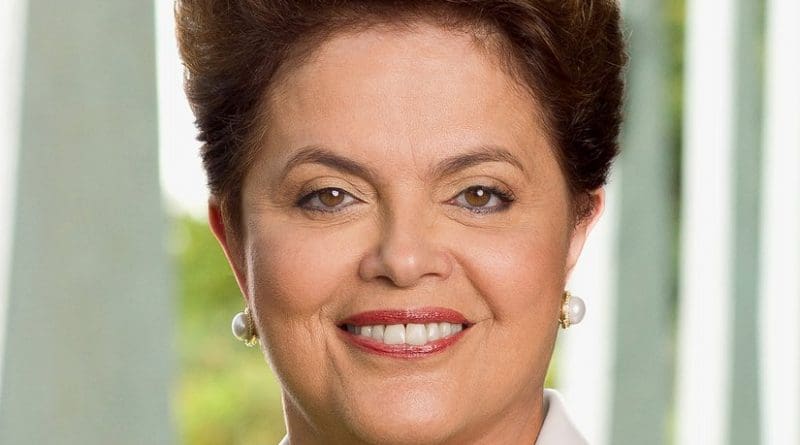Washington Coup In Brazil? Was Incoming President US Embassy Informant? – OpEd
Adding to suspicions of a US role in the ouster of independent-minded Brazilian president Dilma Rousseff is a revelation making the rounds today that Michel Temer, the opposition leader who will step in as interim president, had met with US embassy officials in Sau Paulo to provide his assessment and spin on the domestic political situation in Brazil. Thanks to Wikileaks, we have the US embassy cable that resulted from the incoming president’s visit to US political officers.
Acting president Temer will hold office for up to six months while impeached president Rousseff stands trial in the Brazilian senate. If her impeachment is finalized by a two-thirds vote, Temer will remain in office until elections in 2018.
Rousseff’s ouster has been curious all along. She claims it is a coup against the will of the Brazilian voter and indeed she has not been accused of corruption or serious crime. Instead, she has been impeached for accusations that she used some tricky bookkeeping maneuvers to hide the extent of Brazil’s budget deficit in advance of her successful 2014 re-election bid. Observers would note that if fiddling with economic statistics to make a country’s balance sheet look better were grounds for impeachment in the United States, there would have been successive impeachments for decades or perhaps longer.
There are more curiosities surrounding the US role in Brazil’s “regime change” this week. Just weeks ago, as Brazil’s lower house of parliament began the process by voting 367 to 137 for impeachment, one very powerful opposition senator made his way to Washington to make his case in the Beltway corridors of power.
The Intercept’s Glenn Greenwald wrote at the time:
Today — the day after the impeachment vote — Sen. Aloysio Nunes of the (opposition) PSDB will be in Washington to undertake three days of meetings with various U.S. officials as well as with lobbyists and assorted influence-peddlers close to Clinton and other leading political figures.
Sen. Nunes is meeting with the chairman and ranking member of the Senate Foreign Relations Committee, Bob Corker, R-Tenn., and Ben Cardin, D-Md.; Undersecretary of State and former Ambassador to Brazil Thomas Shannon; and attending a luncheon on Tuesday hosted by the Washington lobbying firm Albright Stonebridge Group, headed by former Clinton Secretary of State Madeleine Albright and former Bush 43 Commerce Secretary and Kellogg Company CEO Carlos Gutierrez.
The US has long been opposed to Rousseff, seeing her independent-mindedness and participation in the BRICS trade grouping as a threat to US influence in the region. Leftist governments in both Brazil and Venezuela have long been targets of US destabilization efforts. When Edward Snowden revealed that the NSA had been tapping her phones, Rousseff delivered a blistering speech at the United Nations accusing the US of violating international law and violating “the principles that must guide the relations among…friendly nations.” Most foreign leaders when informed that the NSA had been spying on them sheepishly dropped the subject. Rousseff was almost alone in venting her rage over what she viewed as betrayal by a friendly government.
Is today’s news about Temer’s trips to the US embassy a smoking gun of a US role in this week’s dramatic events? It must be stated that a meeting between political opposition figures and US embassy officials is not uncommon, and some alternative press accusations that the meeting makes Temer a US “informant” or even a US intelligence agent are probably over-blown. Embassy personnel as a matter of course cultivate political leaders in countries where they are posted to help get an understanding of the broad political situation. But it is part of the US interventionist strategy, from Moscow to Budapest to Minsk to Damascus to Sau Paulo, for US embassy personnel to actively engage opposition figures in countries where the US would like to see regime change. While it is understandable — and can even be admirable — that US embassy political officers actually get out from behind the embassy walls, it is also no secret that these meetings can be highly selective and can serve as a way to reinforce existing US policy toward a particular country instead of gaining a better understanding of the broad political landscape.
How deeply are Washington’s fingers in the pie of Brazil’s political crisis? There is at least one precedent, Greenwald notes in the above article. After years of strident US denial, secret documents were finally released revealing the central role played by the US in Brazil’s 1964 military coup to remove a left-wing government. Plus ça change?
This article was published by RonPaul Institute.

